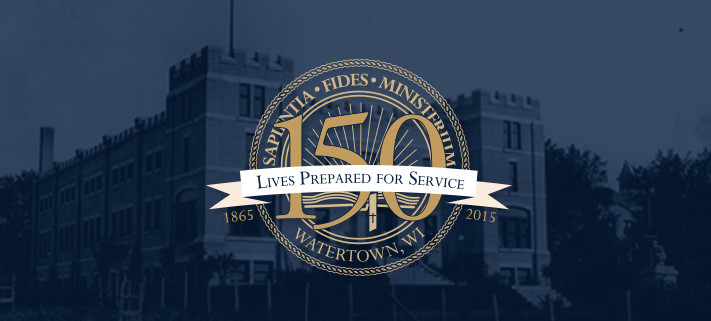Mission Stories: Japan
Blessed!
Bradley D. Wordell
I have enjoyed studying the Bible and worshiping with Reika for almost ten years. But when she started coming to our congregation in Tokyo, my “American thinking” almost caused big trouble.
At that point she had been worshiping with us for weeks, but this was her first potluck meal in our church basement. Reika was born and raised in Taiwan but had moved to Japan as a young adult. That day she had brought some Chinese food to share with everyone. While I was waiting in line, she loaded a plate with various foods from the table and brought it to me. “Pastor, this is for you.” Noticing that my choices would have been a little different, I responded, “Thank you, Reika-san, but please eat what you have chosen. I will go through the line myself.” She offered it to me one more time, but my mind was set.
I had sent the signal to Reika that I did not appreciate her kind gesture. When I realized my blunder later that week, we talked about it. We both came to understand better what the other was thinking during that incident. I apologized. She forgave me. The problem was resolved.
This story is a good illustration of Reika’s life: Reika is a foreigner in Japan, holding out a plate to others. That plate is heaping with the Bread of Life. At first people are not interested. But through her witnessing, many people have come to know, as she does, how blessed the Lord’s people are.
Verses from Psalm 1 help share more of Reika’s story.
NOT IN THE SEAT OF MOCKERS
In this world, we encounter sin every day. Sadly, we sometimes “walk in step with the wicked.” Our sinful flesh wants us to keep company with certain sins; we “stand in the way that sinners take.” How horrible it is when the hardened hearts of people have them living in the camp that is opposed to the Lord. All people are born into that camp, “[sitting] in the company of mockers.” Some people remain there all their lives.
The Lord rescued Reika out of the idolatry of two Asian nations. She remembers as a child the burning of “ghost money” and pretend items, with the purpose of sending help to dead ancestors. Her family also offered real food and drinks to keep those ancestors happy. Angry ancestors might cause problems for their descendants living on earth. Religion in Taiwan taught Reika about good works, religious ceremonies, respect for elders and ancestors, good and bad spirits, the enlightenment of Buddha, and detachment from the world.
As a young adult, Reika moved to Japan and later married a Japanese man. They were blessed with one daughter, Commy, who is now a college student. The religions of Japan, with their millions of gods and countless festivals, did not offer Reika any more hope. In Japan “one-god-religions” are considered narrow-minded and dangerous—the main reason for hatred and war in the world.
In the seat of mockers, some people are defiant against the Lord; others just don’t know what they are doing. Reika is blessed not to be in that seat any longer.
WHOSE DELIGHT IS IN THE LAW OF THE LORD
The Lord led Reika to a Christian church in Japan. As she heard the good news about Jesus, the Holy Spirit opened the eyes of her heart to see the glory of the Savior. She and her daughter were baptized. Later they moved to our neighborhood and visited our church. Through English worship on Saturday nights, Japanese worship on Sunday mornings, and a weekday study of Luther’s Small Catechism in her home, Reika grew in the grace and knowledge of her Savior. She became a member through adult confirmation.
The family decided that Commy would benefit from Christian education in the States. She attended St. Croix Lutheran High School in Minnesota and was supported by her host family, her local congregation, and the faculty and students. With the use of modern technology Reika and Commy were able to read and discuss the weekly sermons—mostly in English and Japanese, but sometimes in Chinese. Commy was confirmed in the States.
Reika’s Bible, catechism, and sermon copies are full of handwritten notes—a testimony to her love of God’s Word. She is like a tree planted by a stream, drinking in the water of God’s Word. She is blessed!
WHATEVER THEY DO PROSPERS
Reika has her own business; she runs an aesthetic salon. Reika’s clients are women who come to her salon for beauty treatments. Through her study of God’s Word, Reika has come to appreciate that everything she has is a gift from her Father in heaven. She wants her business to give glory to God. Every week she gives a portion of her income to support her congregation. In her contact with clients, she is always looking for opportunities to share the hope that she has. Clients can see Bible pamphlets in her salon. When people tell her their problems, she is quick to talk about the solution to all life’s problems. She will ask, “May I say a prayer for you?”
The weekday Bible study in her home (one floor above her salon) is often attended by clients she has invited. She invites and brings them to weekend worship too. She speaks the Word of God to them, telling them what she knows. Of the people baptized at Aganai Lutheran Church in Tokyo in the last ten years, Reika can say, “Eleven of them, though they were served in many other ways as well, attended Bible classes with the pastors in my home.” Reika considers it a privilege to be one of God’s instruments, working with the other members of her church family to reach the lost.
Included in the people she has reached are her sister-in-law, her sister-in-law’s daughters, and her own father, who came from Taiwan to visit her. He was made a child of God through baptism in April of 2015 at the age of 81.
The Lord has blessed Reika and prospered her work in his kingdom.
THE LORD WATCHES OVER THE WAY OF THE RIGHTEOUS
Reika has many favorite Bible passages, but she would put Psalm 1 at the top of her list. She knows that she is one of the “righteous” because she has a Savior—a redeemer who has paid for her sins. She says, “I have learned that God loves me even though I am not perfect. I know my sins and how important it is to repent and believe the good news. The most important thing in my life now is my Savior, Jesus. I want to proclaim God’s Word all my life.”
Brad Wordell is the world mission professor at Wisconsin Lutheran Seminary, Mequon, Wisconsin. He served as pastor/missionary at Aganai Lutheran Church in Tokyo from 1999 until 2015
LUTHERAN EVANGELICAL CHRISTIAN CHURCH IN JAPAN
Year mission work began: 1957
Baptized members: 378
Congregations: 6
Preaching stations: 2
National pastors: 4
Unique fact: The LECC is a founding member church of the Confessional Evangelical Lutheran Conference, a group of 29 member churches worldwide that provides a forum for confessional Lutherans who are in fellowship.
SUBMIT YOUR STORY
Do you have a manuscript, idea, or story from your own life you’d like to share for use in Forward in Christ or on wels.net? Use our online form to share it to our editorial office for consideration.
SUBSCRIBE TO FORWARD IN CHRIST
Get inspirational stories, spiritual help, and synod news from Forward in Christ every month. Print and digital subscriptions are available from Northwestern Publishing House.
Author: Bradley D. Wordell
Volume 102, Number 11
Issue: November 2015
Copyrighted by WELS Forward in Christ © 2021
Forward in Christ grants permission for any original article (not a reprint) to be printed for use in a WELS church, school, or organization, provided that it is distributed free and indicate Forward in Christ as the source. Images may not be reproduced except in the context of its article. Contact us







